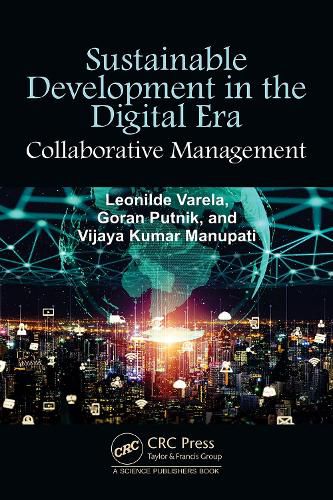Readings Newsletter
Become a Readings Member to make your shopping experience even easier.
Sign in or sign up for free!
You’re not far away from qualifying for FREE standard shipping within Australia
You’ve qualified for FREE standard shipping within Australia
The cart is loading…






Collaborative manufacturing and management are a fundamental requirement in today's digital age, to enable an innovative and sustainable development of companies. This is possible and highly recommended not just in the context of traditional companies, but further in cyber physical systems and in the context of extended, distributed, networked and virtual organizations.
The book provides fundamental methodologies, models, methods, tools, and platforms about collaborative engineering, to support manufacturing and management processes and practices, aligned with the current requirements underlying Industry 4.0, and Society 5.0. It describes the application of collaborative management paradigms, about dynamic, distributed, integrated, intelligent, predictive, parallel, and real-time based approaches and tools to enable collaborating entities, including suppliers, business partners and other stakeholders, to develop projects and solve problems that are becoming increasingly more complex and challenging currently. Such collaborative processes and practices require companies and underlying stakeholders to be connected, and to further communicate, and share data, problems, and expertise, and other kind of resources, along with concerns, difficulties, and challenges, requiring co-learning, and the co-creation of knowledge, processes, methods, and systems to interactively support projects and problems solving.
The book reviews the advances and provides case studies to assist scientists, practitioners and students in high standard manufacturing management processes and practices, to properly handle daily problems and challenges, with a special focus on the use of recent paradigms and tools to support manufacturing management decision making, through innovative methodologies and approaches for permitting researchers to learn, develop further work, and become advanced practitioners and promoters of collaborative management.
$9.00 standard shipping within Australia
FREE standard shipping within Australia for orders over $100.00
Express & International shipping calculated at checkout
Collaborative manufacturing and management are a fundamental requirement in today's digital age, to enable an innovative and sustainable development of companies. This is possible and highly recommended not just in the context of traditional companies, but further in cyber physical systems and in the context of extended, distributed, networked and virtual organizations.
The book provides fundamental methodologies, models, methods, tools, and platforms about collaborative engineering, to support manufacturing and management processes and practices, aligned with the current requirements underlying Industry 4.0, and Society 5.0. It describes the application of collaborative management paradigms, about dynamic, distributed, integrated, intelligent, predictive, parallel, and real-time based approaches and tools to enable collaborating entities, including suppliers, business partners and other stakeholders, to develop projects and solve problems that are becoming increasingly more complex and challenging currently. Such collaborative processes and practices require companies and underlying stakeholders to be connected, and to further communicate, and share data, problems, and expertise, and other kind of resources, along with concerns, difficulties, and challenges, requiring co-learning, and the co-creation of knowledge, processes, methods, and systems to interactively support projects and problems solving.
The book reviews the advances and provides case studies to assist scientists, practitioners and students in high standard manufacturing management processes and practices, to properly handle daily problems and challenges, with a special focus on the use of recent paradigms and tools to support manufacturing management decision making, through innovative methodologies and approaches for permitting researchers to learn, develop further work, and become advanced practitioners and promoters of collaborative management.